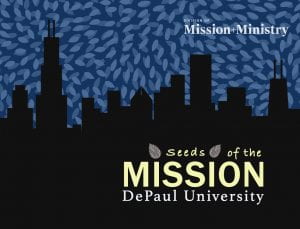In the depths of the pandemic last year, my family, friends, and even work colleagues began sharing recommendations for which show to binge watch next. I’m sure we weren’t alone. This probably started because retelling stories of our daily lives was bleak and became an exercise in recycled trauma, whatever our vocation. We weren’t seeing each other, scattered as we were across the country and world, or even next door, so TV shows became our lingua franca and way of being with one another.
Some of the shows were old standbys that had long since aired, so the spark of rediscovery and most importantly—knowing what came next—helped ease the overwhelming anxiety that permeated every other aspect of our lives. Even if we had seen the episode or heard the jokes before, there was something reassuring about that familiarity. Other shows were new (to us) and exploring their undiscovered countries felt like a joint expedition. Whether the series was just released, like The Flight Attendant or Loki, or was just finishing, like Schitt’s Creek or Killing Eve, we foraged streaming services looking for the next story to share.
With hindsight, a particular kind of humor ran through most of the series we collectively watched—a humor that borrowed a “dash of vinegar” [1] with its gentleness, a comic sense that didn’t flinch from the sadness and tragedy of the world, but that found a way to acknowledge sorrow and still laugh, and in so doing provide relief from its weight. Everything in our lives pushed us towards loneliness and individual sorrow, but through sharing these stories, we found ways to collectively persevere through humor. It made all the difference.
I’ll end with a quote from one of our favorite new shows, Ted Lasso, about an (American) football coach from Kansas who gets hired to lead a premier league (European) football team in England. On the surface, the series seems to be a celebration of joy and positivity (the eponymous Ted is unrelentingly optimistic, after all). Underneath, however, it is a show not about happiness alone, but how to cope with grief, together.
In a memorable scene (no spoilers), from the wonderfully titled episode The Hope That Kills You, Ted professes: “I promise you there is something worse out there than being sad, and that’s being alone and being sad. Ain’t no one in this room alone.” [2]
REFLECTION QUESTIONS
When things seem bleak and most sobering—what are ways that we can authentically find and share joy with one another? How can we find ways to make each other laugh, even while acknowledging the pain all around us? When pursuing our collective Vincentian mission, how do we make sure that we are taking care of each other along the way, so that our “immortified moods” [3] do not overtake both ourselves and our community?
Reflection by: Alex Perry, Program Manager, Division of Mission and Ministry
- [I]f the gentleness of your spirit needs a dash of vinegar, borrow a little from Our Lord’s spirit. O Mademoiselle, how well He knew how to find a bittersweet remark when it is needed!
Vincent de Paul (Volume: 1 | Page#: 383) To Saint Louise, 1 November, 1637 - “I promise you there is something worse out there than being sad, and that’s being alone and being sad. Ain’t no one in this room alone.”
Ted Lasso, “The Hope that Kills You” Season 1, Episode 10, airdate October 2020 - We must hold as an irrefutable maxim that the difficulties we have with our neighbor arise more from our immortified moods than from anything else.”
Vincent de Paul (Volume: 1 | Page#: 597) To Nicolas Durot, in Toulouse, December 1639



